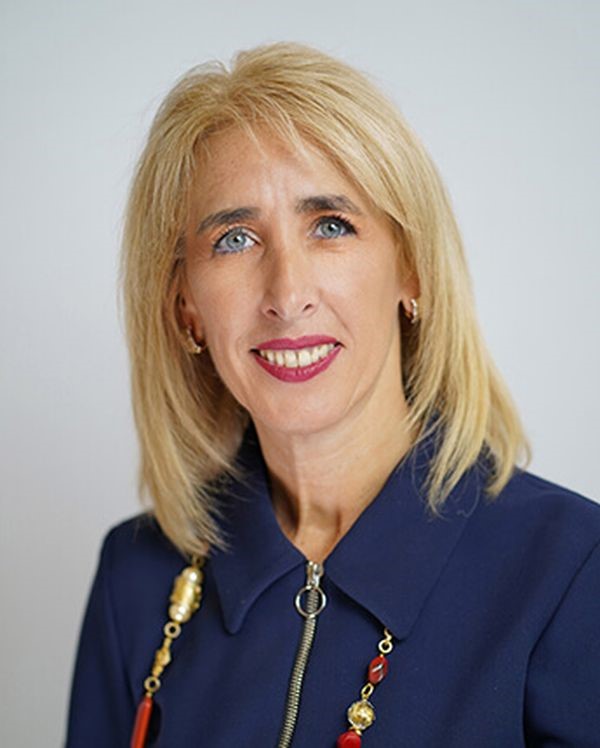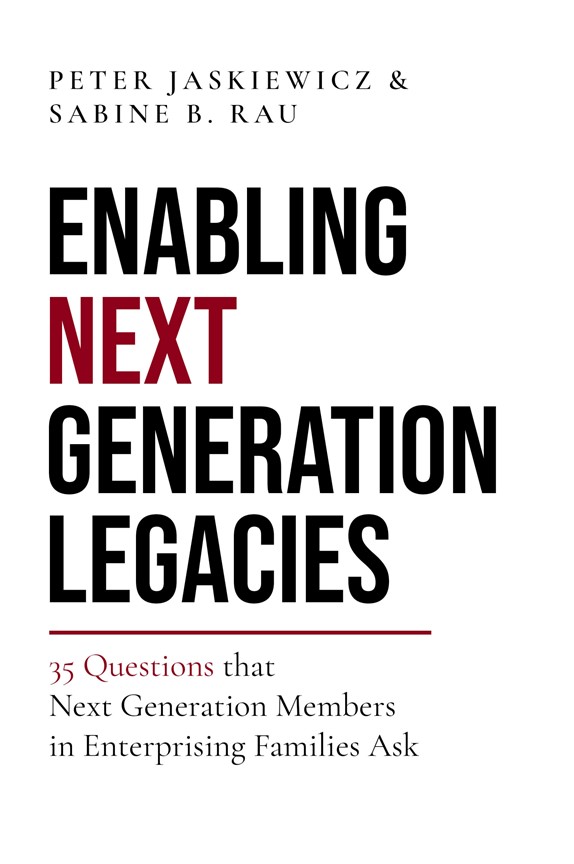Family enterprises face many common challenges, from determining capital and resources to grow the business to knowing when and how to separate business from personal matters.
Telfer is the presenting sponsor of a Globe and Mail series of events called Ideas for a Better Canada. This feature was produced by Globe Content Studio with the Telfer School of Management and was published in The Globe and Mail on April 14, 2022, following the first event in the series — The Future of Family Enterprise — which took place on April 4, 2022. Read the original article.
Family-owned businesses are key to the economy but keeping them thriving through generations can be challenging. According to recent research by PwC Canada, 78 per cent of Canadian family businesses see the business as their family’s most important asset, but only 34 per cent have robust, documented and well communicated succession plans.
“Managing succession successfully is kind of the elephant in the room,” says Peter Jaskiewicz, managing director of the Family Enterprise Legacy Institute and chair, enduring entrepreneurship at the University of Ottawa’s Telfer School of Management. The institute offers a holistic approach to managing family businesses and best practices.

Managing succession is a key issue not only for families who own businesses, but also for Canadians as a whole, Jaskiewicz says.
Family enterprises account for 63 per cent of all private sector jobs in Canada. A 2019 study found that they provide nearly seven million jobs – 46.9 per cent of all private sector employment – and generate 48.9 per cent of Canada’s private sector gross domestic product, nearly $575 billion a year.
The challenges families face in transferring their businesses can vary. “Everybody is talking about the TV series Succession but it’s not always that dramatic,” Jaskiewicz says. “People often look at family businesses as if they were all the same, but each family and family-business combination is unique.”
Jaskiewicz’s work includes research conducted with Old World families that have run businesses for centuries and whose experience can offer lessons for modern family enterprises. His team looked at 21 families who are running German winery businesses wineries into their 11th generation, on average.
“We conducted more than 80 interviews over seven years to get to know these families and develop a sharp picture of what helps cultivate next-generation family members who are competent, motivated and entrepreneurial,” he says.
Know when to talk business
Patricia Saputo, co-founder of Crysalia, Chief Learning and Development Office for Enterprising Families, says one of the biggest challenges families face is separating business from day-to-day life.

“You have to remember what hat you wear and what room you’re in,” says Saputo, who is part of the family that built Montreal-headquartered Saputo, Inc. into one of the world’s biggest dairy processors, with more than 17,000 employees and 65 plants in Canada and internationally. The Saputos have managed to avoid common pitfalls and achieve success in their businesses with relatively little drama.
Successful families seem to manage their business and organize succession in relative privacy. The Mannix family based in Calgary, for example, has weathered boom and bust in the energy sector by combining a commitment to family privacy with rare public appearances for events or philanthropy timed to make an impact for public good.
Business and family may be intertwined, but that doesn’t mean they have to mix all the time, Saputo says. It’s important to be a family member in the family room, a board member in the board room and an operator/manager in the operating/business room, she says.
“An executive of a family business might come over to Mom and Dad’s house for dinner and talk only about business, and this might upset some family members. It’s not necessarily the place for business, it’s the place for family conversation,” she explains.
“Conversely, at a board meeting for a family business, the board members want to focus on business. It’s important for family members who are executives to pay attention to what they say to whom, and when and where they say it,” she says.
Families must also contend with the fact that they grow while the business grows, with more family members seeking roles as they become adults, marry and have their own children. This can limit some members’ opportunities for advancement if there’s not enough room for everyone, Saputo says.
“You have to prune the family tree from time to time when it comes to the business side, and this is difficult,” she says. At the same time, it’s important not to ignore extended family members because they can bring new and diverse ideas to the enterprise in areas such as technology and social change.
Advice from professionals who are not family members can help with difficult decisions such as who gets promoted and compensation, Saputo adds.
Watch the full webcast featuring Peter Jaskiewicz and Patricia Saputo:
Future of the Family Enterprise - Equipping Canada's next generation of business leaders
Balance control for smooth transitions
Jaskiewicz, has co-written (with Sabine Rau, family business consultant and visiting professor at the Telfer School) a new book about family business transition called Enabling Next Generation Legacies. In another article, he grouped the European winery-owning families into four types: “James Bond,” “Eternus,” “United” and “Steward.”

The James Bond families are run by a secretive CEO who is a family member – usually a man, Jaskiewicz says – and who doesn’t keep the family in the loop about the business.
“The next generation is neither motivated nor prepared to take leadership roles when the time comes,” he says.
Eternus families are run by authoritarians too, but the family boss shares information about the business with family members at home. However, these CEOs have trouble letting go of power and often fail to appoint a successor; family members who might have been ready to take the reins then slip away, and sometimes the business does too.
“I know of one family where the father was never ready to give over the reins of the business to his daughter,” Saputo says. “One day, he told her he was finally ready and she said, ‘No, I’m already 65. It’s too late, I’m retiring now,’ "
In cases like this the family can sometimes skip to the next generation, but not always; some family members opt to choose entirely different careers that have nothing to do with the family business, she explains.
The United families that Jaskiewicz analyzed integrated family members into decisions without being dominated by a family CEO. Still, his research found that sometimes competent family members in these set ups get passed over for key roles in favour of others, and then leave the business – taking with them their energy, talent, knowledge, contacts and any special expertise they might have gained from having an inside perspective on the family enterprise since childhood.
“These are cracks that could be prevented, or at least managed, with the help of a trusted advisor,” Jaskiewicz says.
Finally, Stewards are businesses in which family members are involved deeply in both the business and each other’s lives.
“Succession in these families comes with little conflict and successors are, on average, highly qualified, motivated and entrepreneurial,” Jaskiewicz says.
Agreeing with Saputo’s view, he adds that these tight-knit families often rely on trusted outside advisors. Many have long-standing relationships with advisors who organize retreats that connect core family members with those on the periphery, such as cousins or new sons- and daughters-in-law.
“Those [relatives] who might otherwise be ignored because of gender or birth order need emotional support and opportunities to foster their contributions to the family enterprise,” Jaskiewicz says. An outside advisor can facilitate communication and mediate conflicts within the family, he explains.
No matter how warm and informal family life may be, succession requires planning, Saputo says: “As the saying goes, if you fail to plan, you plan to fail.”
Learn more about Telfer's Family Enterprise Legacy Institute











